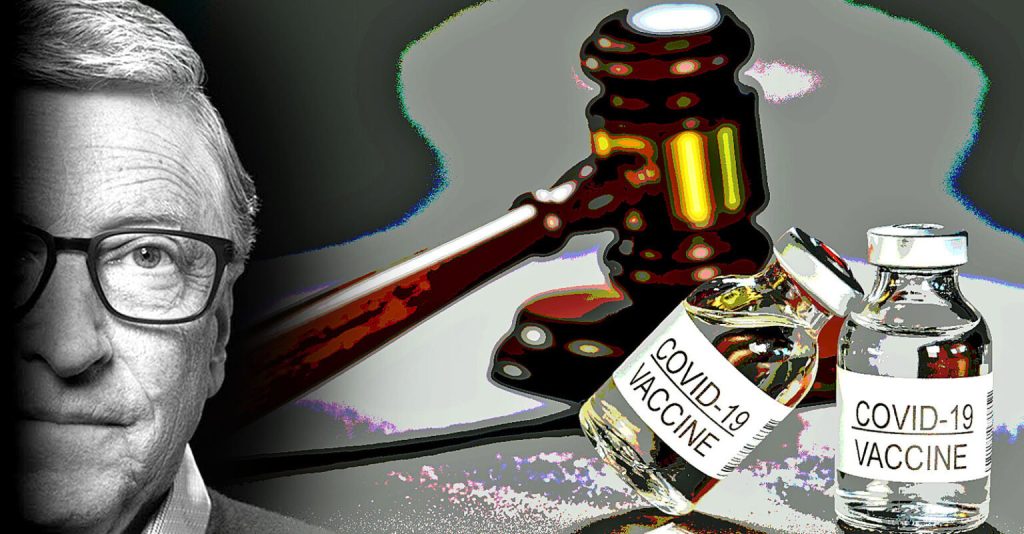In a significant legal development, a court in the Netherlands has ruled that Bill Gates can stand trial regarding allegations stemming from the COVID-19 vaccine injuries suffered by seven plaintiffs. This lawsuit, which also targets former Dutch Prime Minister Mark Rutte, members of the Dutch government’s COVID-19 “Outbreak Management Team,” and Pfizer CEO Albert Bourla, was initiated by a group identified as “corona skeptics.” The plaintiffs claim that they were misled about the safety and efficacy of the vaccines they received, despite Gates allegedly knowing these shots posed potential risks. Dutch journalist Erica Krikke reported that one of the seven plaintiffs has died since the lawsuit’s filing, leaving six individuals to pursue legal action against the prominent figures involved. The case has drawn attention not only because of its nature but also due to the high-profile defendants.
The lawsuit, filed in the District Court of Leeuwarden, raised issues of jurisdiction, as Gates argued that the Dutch judiciary lacked authority over him due to his residence in the United States. However, the court ultimately ruled it did have jurisdiction, finding that the claims presented were sufficiently connected and based on a complex set of facts. Other defendants, including Bourla, did not challenge the court’s authority. As part of the ruling, Gates was ordered to pay court fees amounting to approximately 1,520 USD. The implications of this ruling could extend beyond the individuals involved, as the court has set a legal precedent regarding jurisdiction in cases where defendants reside outside the nation of the plaintiffs, stirring hopes among those advocating for similar claims globally.
Plaintiffs and their legal representatives have expressed mixed reactions to the ruling. Attorney Arno van Kessel welcomed the court’s decision, interpreting it as validation of their claims while acknowledging that prior COVID-19 related lawsuits in the Netherlands have faced significant challenges. Legal expert Meike Terhorst expressed concern about the overall sentiment among judges in favor of COVID-19 vaccinations, questioning the likelihood of success for this particular case. Yet, Krikke remains optimistic about the message the ruling conveys, emphasizing that wealth and fame do not exempt individuals from accountability.
At a previous hearing, emotional testimonies from plaintiffs highlighted the human impact of the vaccine injuries experienced. One severely affected plaintiff was represented by her father, who with a heavy heart conveyed the devastating change in his daughter’s health following vaccination. His plea to the court for accountability illustrates the deeply personal nature of the lawsuit, and the anguish felt by those injured or affected during this pandemic. Such narratives strengthen the plaintiffs’ position in pursuit of justice and the truth surrounding vaccine safety.
The court’s final ruling also touched upon broader themes involving Gates, the World Economic Forum (WEF), and the concept of the “Great Reset.” The ruling contextualized Gates’ activities within his foundation’s alignment with the WEF, an organization promoting global reforms purportedly justified as solutions to perceived worldwide crises. The court’s findings echo criticisms surrounding the pandemic response, suggesting that centralized global actions were framed as necessary interventions for crises like COVID-19. This aspect of the ruling adds a layer of complexity to the legal proceedings, influencing how similar claims might be perceived in the context of ongoing debates about public health policy and individual rights.
Overall, the Netherlands court’s decision may serve as a pivotal moment in the ongoing discourse around vaccine safety and accountability of influential figures in public health. As the case progresses, it is poised to inform future litigation both domestically and internationally, where claims of vaccine injuries and the role of powerful individuals and entities are scrutinized. The hearing scheduled for November 27 will be critical in determining the trajectory of this lawsuit and potentially shaping the narrative concerning the ethics and accountability in healthcare practices, especially in the context of a global pandemic response. The unfolding proceedings may provide a platform for further discussions on the implications of public health policies and the responsibilities of those who engage in shaping and influencing these policies.

